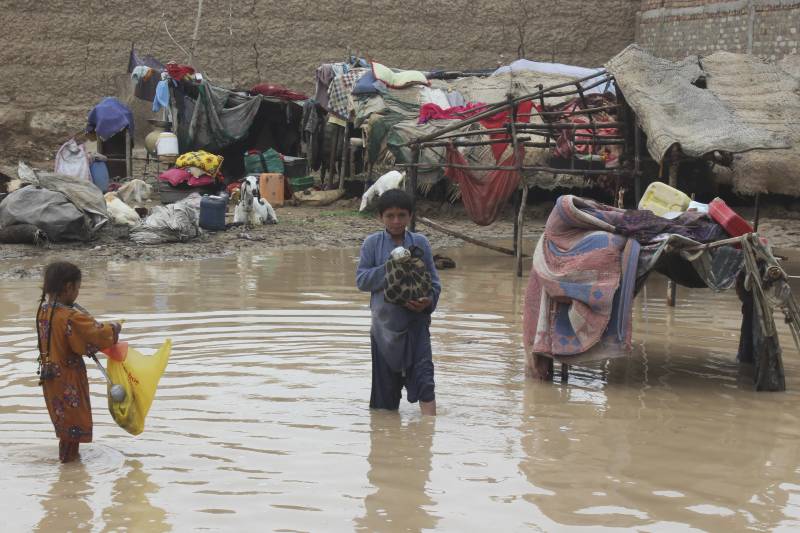
Pakistani farmer Sajid Ali wades glumly through his flooded cotton field after days of torrential monsoon rains let up, surveying the irreversible damage.
“My crop is almost totally destroyed, all six acres of it. There is no hope left, because even now the fields are covered in four feet of water,” he said from Masoo Burburi, a tiny village in the province of Sindh.
Southern Pakistan has been hit hard by floods after unusually heavy monsoon rains this year. Scores of people have been killed and hundreds of homes have been swept away.
Around 50 villages in Sindh were inundated, reported local media, after flash floods from the neighbouring province of Balochistan flowed over, destroying thousands of acres of agricultural land and orchards.
Ali’s village was one of those hit hard. Around 60 families call it home, mostly engaging in agricultural work, planting cotton, wheat and chilies.
The region has been suffering from drought for decades and the monsoon rains were always welcome. But this year, it was too much of a good thing and now, farmers like Ali are at a loss as to what to do.
“I had taken out a loan for sowing this crop. But now I have to go and work on someone else’s land because we can’t make ends meet on what is left of the crop,” Ali said.
According to Ali, his crop was worth around $7,500, over four times Pakistan’s current per capita income of $1,666, according to the country’s statistics bureau.
Rana Shakeel Ahmed, a village elder, described the loss as substantial and said no help from authorities had been forthcoming.
Rescue authorities have said help had been delayed because large amounts of infrastructure had been destroyed by continuous and heavy rainfall, with a road linking Sindh and Balochistan completely cut off.